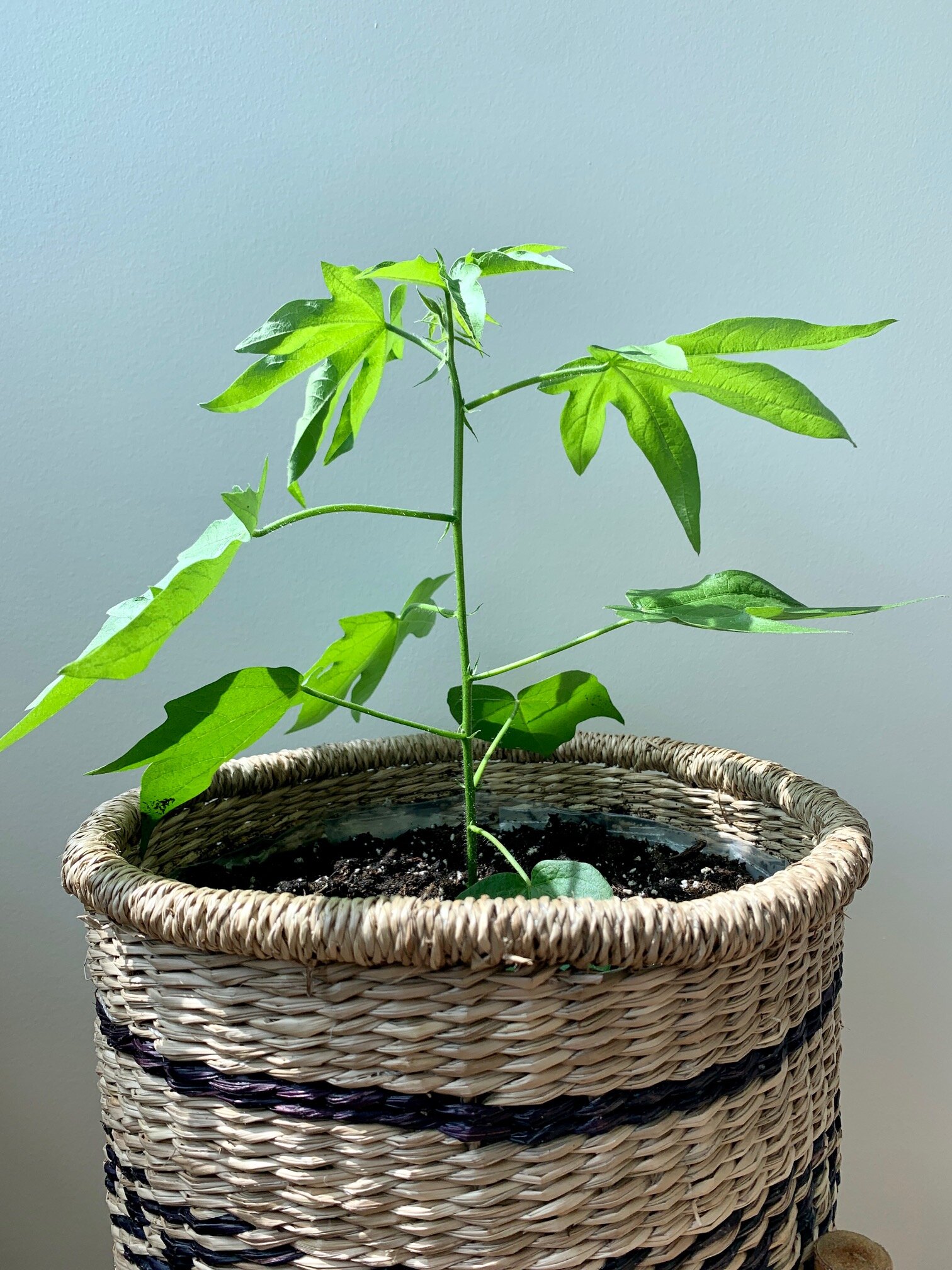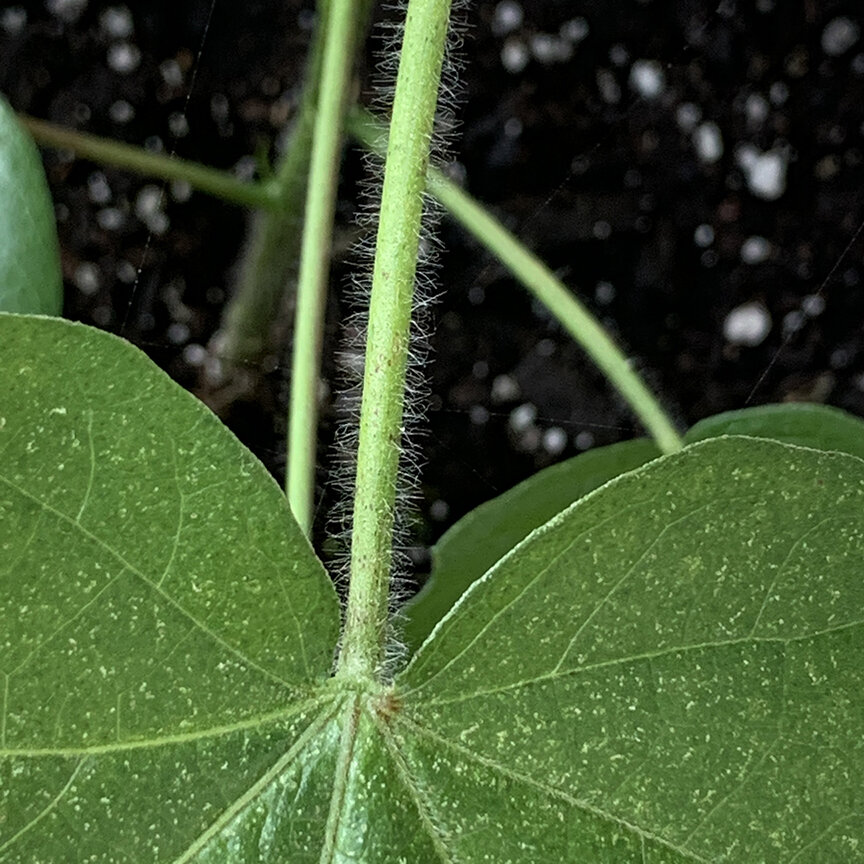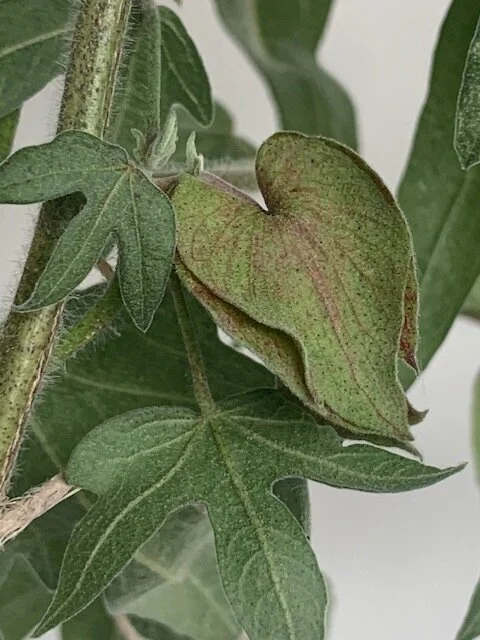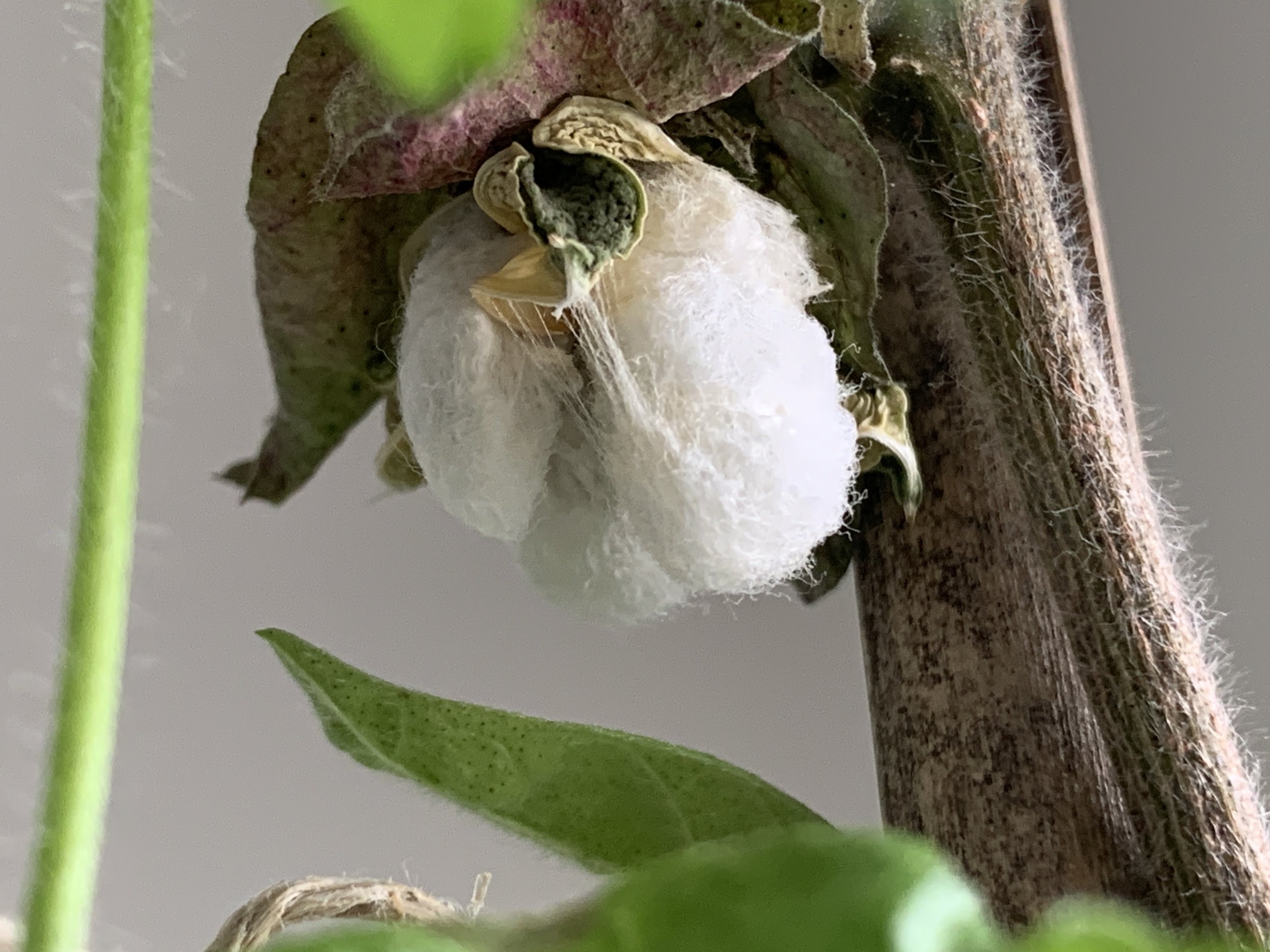Unskilled is a three-part research- and process-based exploration of the life cycle of clothing from seed to closet including the many sites of skill and care that evade or constitute it. Unskilled renders the work of care as a slowed down participatory process that confronts and confounds fast fashion.
Unskilled is supported by the Centre for South Asian Civilizations at University of Toronto Mississuaga through the 2020 artist-in-residence award.
Series
Unskilled
Created
2020 - 2021
Medium
Multiple
Dimensions
Varied
Articles of Clothing
Using mainstream media photographs found online that accompany articles about garment worker protests in South Asia, I take a micro view of patterns found on the clothing of working-class garment workers during protest actions for fair wages and safe factories and expand on these in detailed mixed media drawings. I render these in accurate detail, thereby showing a level of care rarely afforded to those whose skilled labour is routinely exploited. As viewers of this work, we are asked to look anew at garment worker actions and activism beyond the numbing impact of mass media images.
Source images and process videos can be found here.
―
Industrial Accident, 2020, pencil on paper, 15 in. x 12.5 in.
Source image (slide 24 of 28) accessed on May 6, 2020.
Any Safer, 2020, pencil and ink on paper, 15 in. x 12.5 in.
Source image accessed on May 16, 2020.
Media Won’t, 2020, pencil on paper, 15 in. x 12.5 in.
Source image accessed on May 21, 2020.
Globalized Capitalism, 2020, pencil on paper, 15 in. x 12.5 in.
Source image accessed on May 28, 2020.
Mixed Progress, 2020, pencil and ink on paper, 15 in. x 12.5 in.
Source image no longer available. Accessed on June 6, 2020.
Safety Catches, 202, pencil and oil pastel on paper, 15 in. x 12.5 in.
Source image no longer available. Accessed on June 13, 2020.
Untitled (Alamy), 2020, pencil on paper, 15 in. x 12.5 in.
Source image no longer available. Accessed on June 26, 2020.
Turns Violent, 2020, pencil on paper, 15 in. x 12.5 in.
Source image accessed on July 9, 2020.
Sollen Haften, 2020, ink on paper, 15 in. x 12.5 in.
Source image accessed on May 7, 2020.
For Profits, 2020, ink on paper, 15 in. x 12.5 in.
Source image no longer available. Accessed on May 25, 2020.
Minimum Wage, 2020, pencil on paper, 15 in. x 12.5 in.
Source image accessed on June 1, 2020.
Travailleurs des Vêtement, 2020, pencil on paper, 15 in. x 12.5 in.
Source image accessed on June 9, 2020.
Tragic Number, 2020, pencil and ink on paper, 15 in. x 12.5 in.
Source image accessed on June 18, 2020.
Tearful Protest, 2020, pencil on paper, 15 in. x 12.5 in.
Source image accessed on June 30, 2020.
Factory Fire, 2020, pencil and ink on paper, 15 in. x 12.5 in.
Source image (2 of 80) accessed on July 16, 2020.
New Clothing Care Symbols
Clothing care symbols were created in the late 1950s and were globally standardized in the decades following. These symbols that are found on most garments offer basic instructions on washing, drying, and ironing with the focus being on maximizing the lifespan of the garment. Through the #newclothingcaresymbols, I have created a new set of 41 care symbols on a 100% cotton label that extends the idea of care to include other aspects of our relationship to clothing: the labour conditions in which it has been created; its environmental considerations; and our emotional relationship to what we own. In this participatory project, people are invited to request a free label and mark and affix it to their clothing.
Participate in this #newclothingcaresymbols project.
―
Gossypium Herbaceum
To immerse myself in an understanding of the life cycle of clothing, I am growing an indoor organic cotton plant from a non-commercial seed known as Gossypium Herbaceum, “Levant cotton” or “desi cotton". This variety of seed is indigenous to the Middle East and South Asia as the original short-staple cotton plant grown for its alignment to hand weaving, an ancient, widespread, and sustainable practice in pre-colonial Asia. In the 19th century, short-staple cotton cultivation in India was purposely destroyed by the colonial East India Company to make way for the mass production of long-staple cotton agriculture geared toward industrial yarn and cloth production in Britain that impoverished both the Indian countryside and the English hand weaving industry. Today, small initiatives in India continue to resist this 19th century violence by cultivating short-staple organic cotton and realigning the work of farming, spinning, weaving, and textile construction.
By tending to the lifecycle of a cotton plant since first sowing seeds in June 2020, I am slowing down the invisibility of the world’s most ubiquitous fibre as it moves from plant towards cotton lint. In this durational performance, I have used photography and drawing to document the growth of my cotton plant and attend to its unfurling beauty of this deeply revered plant.

































































